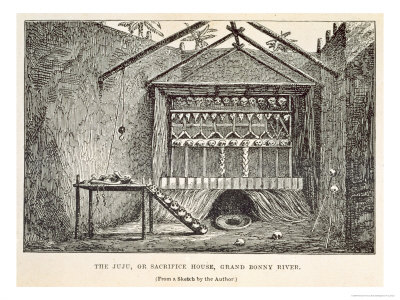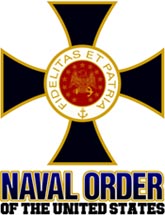Fernando Po
Bioko
Fernando Po is a strategically important island off the coast of West Africa. Its position made the island highly sought after by various European navies including the Dutch, Portugese, Spanish and also the British. Unfortunately, the position was still very much in the highly diseased equatorial zone that had earned West Africa the sobriquet of "White Man's Grave." Because of such health issues, many settlement attempts ended in failure and the Spanish abandoned the colony in 1827.
The British used the port on the North coast as their main base of operations. It was renamed Port Clarence in honour of the Duke of Clarence who became William IV. The base was never a popular destination for British sailors as disease was still a major problem. However the population of the island increased substantially due mainly to numbers of freed slaves. This was often the first port of call for Royal Navy ships after they had confiscated slaves from illegal slavers. Many, but not all, of the slaves remained on the island and set up a new life for themselves.

The success in reviving the colony meant that the Spanish were keen to have a second look at their colony.
From 1844, they stated their intention to resume control of the islands but it would take another decade before they did. One other factor in the return of the Spanish was the success of protestant missionaries in gaining converts on the island. Catholic Spain felt that their own missionaries should be doing the converting and lobbied hard for the British lease to be revoked. This was done in 1855.
Sir Richard Burton at Fernando Po
In the early 1860's, Sir Richard Burton sought a diplomatic position, particularly that of consul in Damascus. His requests were declined, but as compensation he was offered a consulship on the island of Fernando Po (now Bioco and part of Equatorial Guinea). Despite its reputation as the "graveyard of consuls" due to malaria, Burton accepted the post and sailed on August 24, 1861. Stopping at no less than twenty-four West African ports en route, the voyage took over a month. Arriving at Fernando Po on September 27, 1861, he lingered no more than a week before setting off to visit the Niger delta. Returning to Fernando Po in February 1861.
 |
| The Juju, Grand Bonny River, from Wanderings in West Africa Richard Francis Burton. |
He departed within days to see something of Cameroon, Nigeria and (probably) Dahomey, with short excursions inland. In November 1861 he embarked on a third excursion, visiting the coasts opposite Fernando Po and, in the company of a young botanist, Gustav Mann, explored the Cameroon Mountains, naming three peaks Mt. Isabel, Mt. Selim and Mt. Milnes. Burton returned to his Fernando Po in April 1861 to face an outbreak of yellow fever.
Burton intensely disliked Fernando Po itself and took every opportunity to visit the mainland. In August 1862 he went to Benin City, and on occasions he would slip away on a merchant ship to meet his wife in the Canary Islands. Even so, Isabel's misery and loneliness resulted in an appeal to the Foreign Office that Burton should be recalled, and by December 1862 he was back in England.
September 25, 1869, Sacramento Daily Union, Sacramento, California, USA
CUBANS AT FERNANDO PO
Narrative of an Escaped Prisoner
The Boston Commonwealth publishes the following letter, received trom a Cuban patriot who escaped from Fernando Po:
We (my brother and myself) were imprisoned on the 14th of February last, with some of our friends and other Remedios and Caribbean people (fifty-five altogether), and since than, till our arrival in Fernando Po, we suffered a great deal from bad treatment at the hands of our enemies, especially during our stay in "La Cabana," where the volunteers threatened to assassinate us everyday. In that fort the Fifth Battalion, under Herrera's command, came upon us on our arrival, but they did not take our lives away, through the exertions of the few regular troops who escorted us. They are a miserable rabble, for the most part "carretoneros" (teamsters). When we were embarked for Fernando Po we were not officially informed of our sad destiny, and but very few days before our arrival there did we know the truth. We always believed that we would be carried to Cadiz or Canaries. Those bloody brutes did not content themselves with tormenting as physically, but by every means tried to harass us morally. We had eighty-four volunteers on board for our custody, from whom we received very hard treatment, and they robbed us shamefully. The "mariners" behaved only a little better toward us, but prevented the volunteers from satiating their thirst for blood.
 |
| The Islet of Henrique, Fernando Po |
Dulce permitted a Spaniard, named Vigo, to go with us, earning some provisions which be sold to us at onerous prices. He robbed us also, and gave us very mean food, but it was much better than the national "rancho." At Puerto Rico, where we put in for some pretended repairs (twenty-six days' passage from Havana), we were thrown into a pontoon in which we suffered severely from want of air, and at Cape de Verde Islands the coal was let loose down into the hold, blackening us in such a way that we could not recognize each other. We breathed but coal-dust during three or four days, and to quench our thirst we had but salt water! In fact, during the sixty-three days employed in the navigation from Havana to Fernando Po, we were submitted to every kind of cruelty. They did not much desire to arrive with us at our destination.
We left Fernando Po on the 21st of last June, and alter many hardships succeeded in arriving at Old Calabar, on the west coast of Africa, five days alterward, where we were kindly entertained by the Europeans established on that river. We received some tokens of sympathy from the natives. We left Fernando Po's shores in a canoe, and ten miles out embarked in a small cutter beforehand prepared for our escape. Having encountered severe weather before reaching our destination, we were lucky to have plenty ot yams to eat. On the 30th of June we took passage to Liverpool on board a royal mail steamer (British) and arrived safely there July 30th, after escaping twice from the Spaniard's grasp, the first time at Bonny, where we met the Spanish man-of-war Concordia, sent out in our pursuit, her command having tried in vain to get in his assistance the natives, as well as the members ol the Court of Equity, formed by some of the European merchants on tbe river, in order to take us from on board. The second was at Tenerifte (the steamer touches there according to agreement with the Spanish Government).
The authorities had knowledge of our escape by a previous mail, but they did not come on board, through the stratagems of the commander, who reported to have had two cases of yellow fever (very bad fever, indeed), and everybody on shore was afraid ot the contagion. We did not take our baggage with us from Fernando Po, for lear of being detected, and all our clothes were those which we had on; but we were kindly presented with some by the Calabar and Bonny people, British subjects for the most part.
The island of Fernando Po was placed in a state of' war on our arrival, and after having been harangued by the Governor (who, I must own, is the only Spaniard I have known honest), we were left to find out our own way, as we reported to him to have sufficient means for our support. The island is very unhealthy, and is a dreary prison. We did not receive very bad treatment there, but a Spaniard who was our fellow-traveller informed us that the Governor, on ascertaining our escape, had taken very severe measures against our remaining companions. He was capable of cruelty.
1899. World's Fleet. Boston Daily Globe
Lloyds Register of Shipping gives the entire fleet of the world as 28,180 steamers and sailing vessels, with a total tonnage of 27,673,628, of which 39 perent are British.
| Great Britain | 10,990 vessels, total tonnage of 10,792,714 |
| United States | 3,010 vessels, total tonnage of 2,405,887 |
| Norway | 2,528 vessels, tonnage of 1,604,230 |
| Germany | 1,676 vessels, with a tonnage of 2,453,334, in which are included her particularly large ships. |
| Sweden | 1,408 vessels with a tonnage of 643, 527 |
| Italy | 1,150 vessels |
| France | 1,182 vessels |
For Historical Comparison
Top 10 Maritime Nations Ranked by Value (2017)
| Country | # of Vessels | Gross Tonnage (m) |
Total Value (USDbn) |
|
|---|---|---|---|---|
| 1 | Greece | 4,453 | 206.47 | $88.0 |
| 2 | Japan | 4,317 | 150.26 | $79.8 |
| 3 | China | 4,938 | 159.71 | $71.7 |
| 4 | USA | 2,399 | 55.92 | $46.5 |
| 5 | Singapore | 2,662 | 64.03 | $41.7 |
| 6 | Norway | 1,668 | 39.68 | $41.1 |
| 7 | Germany | 2,923 | 81.17 | $30.3 |
| 8 | UK | 883 | 28.78 | $24.3 |
| 9 | Denmark | 1,040 | 36.17 | $23.4 |
| 10 | South Korea | 1,484 | 49.88 | $20.1 |
| Total | 26,767 | 87.21 | $466.9 | |




 Copyright ~ 1998-2018.
Copyright ~ 1998-2018. 